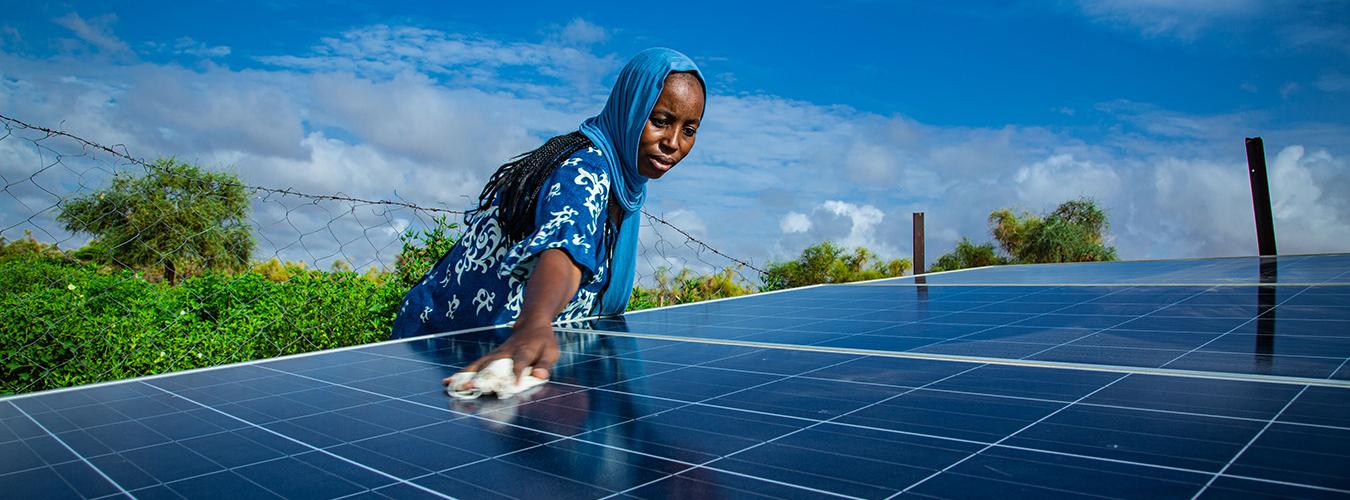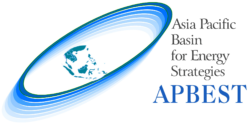 Solar energy is the most abundant of all energy resources and can even be harnessed in cloudy weather.
Solar energy is the most abundant of all energy resources and can even be harnessed in cloudy weather.
Photo:Raphael Pouget/UNICEF
Clean energy: for all…
Energy lies at the core of a double challenge: leaving no one behind and protecting the Planet. And clean energy is crucial to its solution.
In a world grappling with climate change, clean energy plays a vital role in reducing emissions, and can also benefit communities lacking access to reliable power sources. Still today, 685 million people live in the dark – more than 80 per cent of them in Sub-Saharan Africa.
The connection between clean energy, socio-economic development, and environmental sustainability is crucial in addressing issues faced by vulnerable communities worldwide.
For populations without clean energy access, the lack of reliable power hinders education, healthcare, and economic opportunities, and many of these developing regions still rely heavily on polluting fossil fuels for their daily life, perpetuating poverty. If current trends continue, by 2030 around 1.8 billion people will still use unsafe, unhealthy and inefficient cooking systems, such as burning wood or dung.
Although this situation has generally been improving, the most recent figures show that the number of people without electricity actually increased by 10 million in 2022, as population growth outpaced progress. The world is not on track to achieve Sustainable Development Goal 7 (SDG7), which aims to ensure access to affordable, reliable, sustainable and modern energy for all by 2030.
… and for our planet
But adopting clean energy is integral to the fight against climate change, as well.
A large chunk of the greenhouse gases that blanket the Earth and trap the Sun’s heat are generated through energy production, by burning fossil fuels (oil, coal, and gas) to generate electricity and heat.
The science is clear: to limit climate change, we need to end our reliance on fossil fuels and invest in alternative sources of energy that are clean, accessible, affordable, sustainable, and reliable. Renewable energy sources – which are available in abundance all around us, provided by the sun, wind, water, waste, and heat from the Earth – are replenished by nature and emit little to no greenhouse gases or pollutants into the air.
At the same time, improving energy efficiency is key. Using less energy for the same output – through more efficient technologies in the transport, building, lighting, and appliances sectors for instance: saves money, cuts down on carbon pollution, and helps ensure universal access to sustainable energy for all.
Background
The International Day of Clean Energy on 26 January was declared by the General Assembly (resolution A/77/327) as a call to raise awareness and mobilize action for a just and inclusive transition to clean energy for the benefit of people and the planet.
26 January is also the founding date of the International Renewable Energy Agency (IRENA), a global intergovernmental agency established in 2009 to support countries in their energy transitions, serve as a platform for international cooperation, and provide data and analyses on clean energy technology, innovation, policy, finance and investment.
Did you know?
Coal, oil, and gas (fossil fuels) are responsible for nearly 90% of global carbon dioxide emissions.
Scientists emphasize the need to cut emissions by almost half by 2030 and achieve net-zero by 2050 to avoid the worst impacts of climate change.
Fossil fuels still dominate global energy production, but renewable sources of energy, such as wind, solar, hydro, and geothermal, now power about 29% of electricity worldwide.
Read more here: https://www.un.org/en/observances/clean-energy-d

